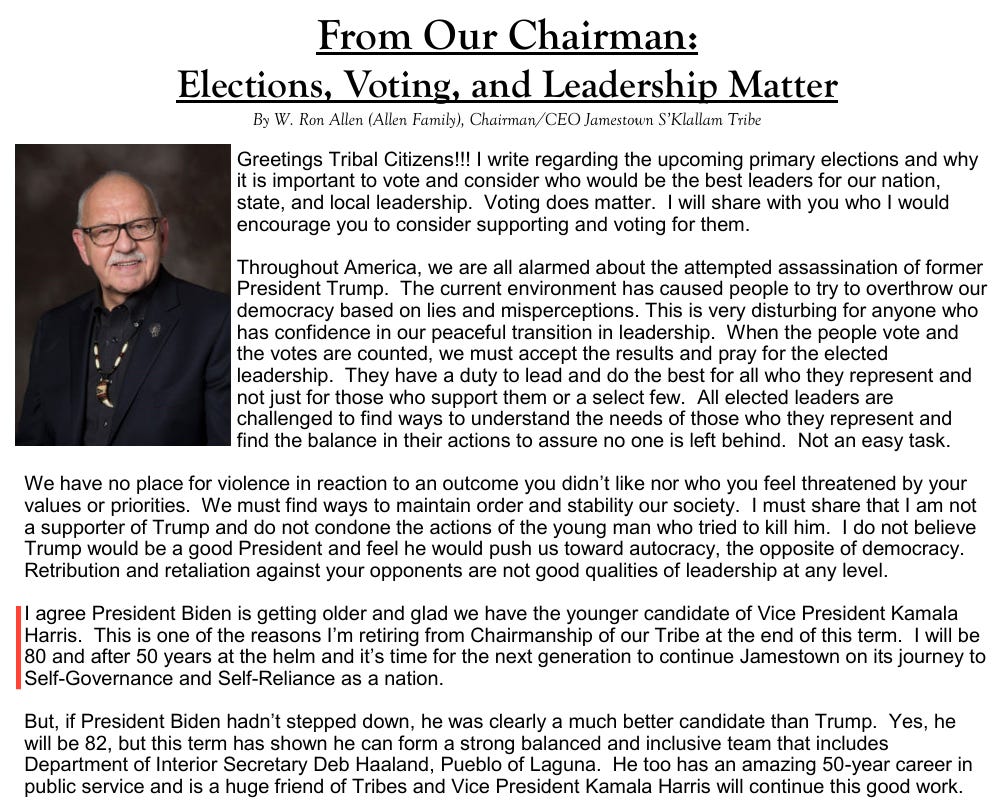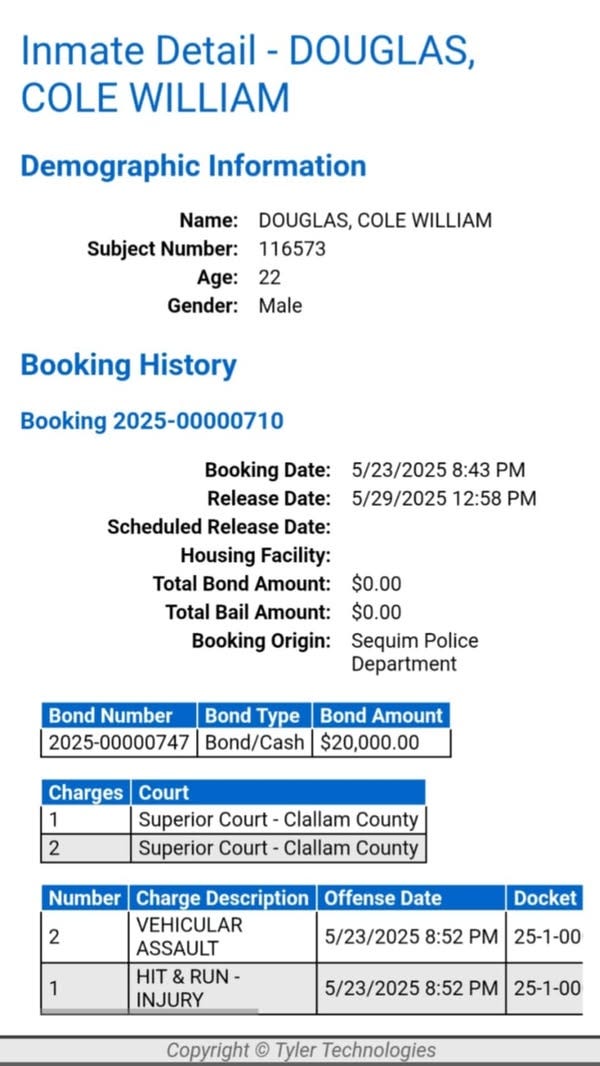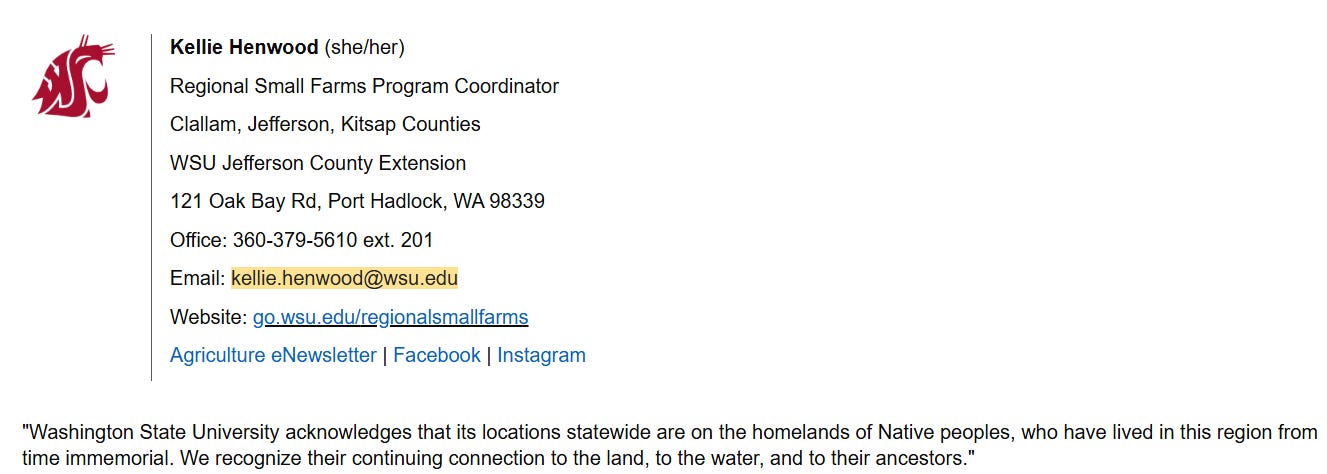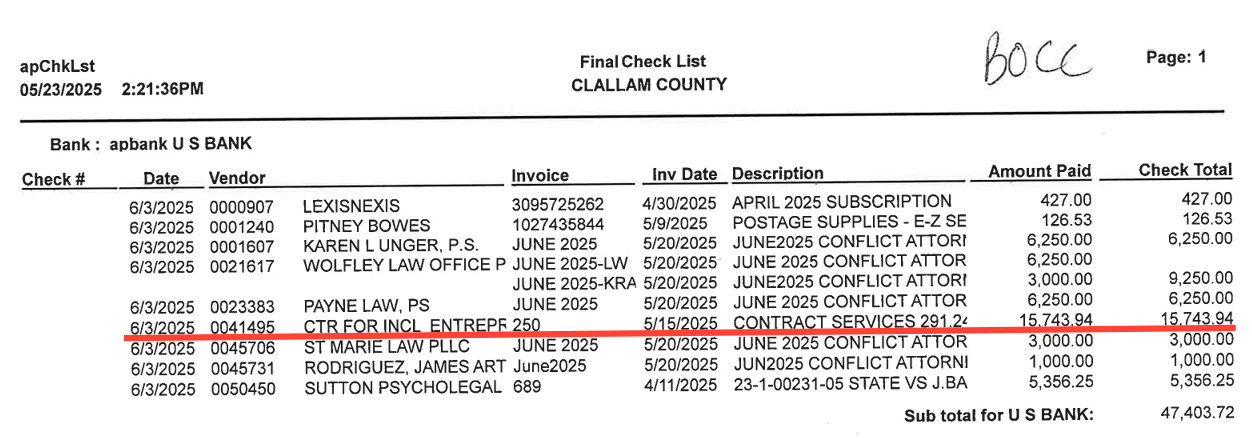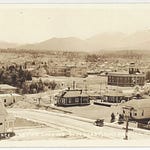From land grabs to hit-and-runs, housing failures to hidden agendas—ten stories that expose a growing pattern of double standards, vanishing oversight, and taxpayer-funded hypocrisy.
A different kind of “self-reliance”?
Vice Chair of the Jamestown S’Klallam Tribe, Loni Greninger, recently testified before the U.S. Senate, insisting that tribal nations need more federal support for behavioral health, food security, employment, housing, and childcare. Yet she also called for greater tribal self-governance and self-determination. So which is it?
Greninger’s testimony reveals a familiar tension: demanding independence while relying on federal dependency. If tribes are on a “journey to self-reliance,” why do they continue to request broader federal programs, deeper agency involvement, and more non-competitive funding streams? It’s a journey with a gas card—and taxpayers are still filling the tank.
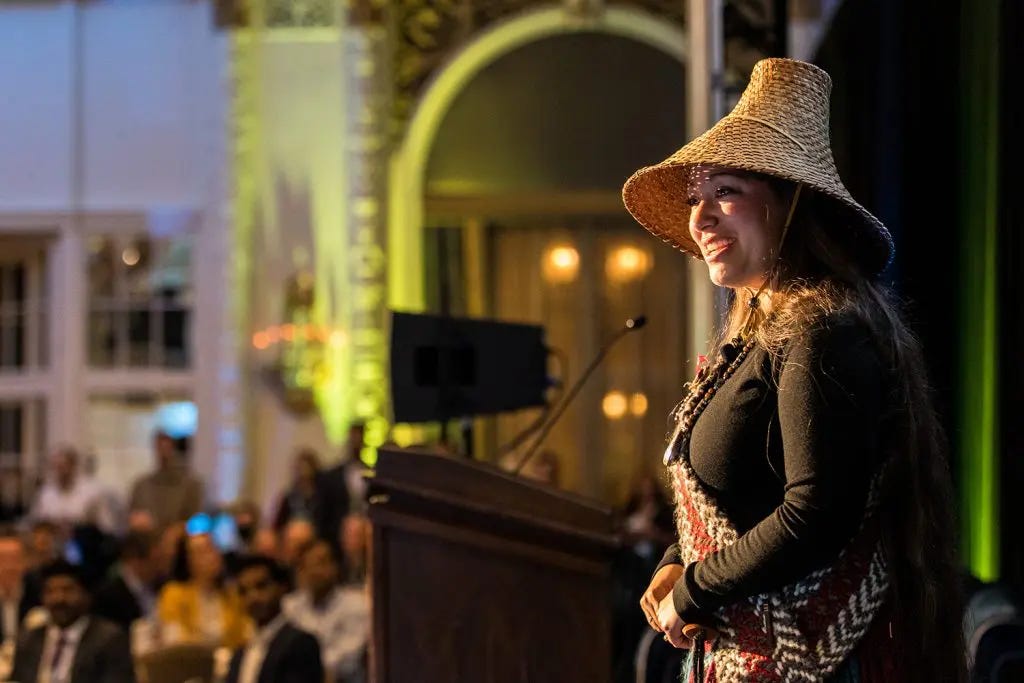
County refuses to push back on tribal land acquisitions
The Bureau of Indian Affairs has, once again, invited Clallam County to weigh in on another parcel being converted into trust land by the Jamestown Tribe. They're asking basic questions—like what property taxes are being lost and what government services are currently provided. But for at least a decade, Clallam’s commissioners have refused to respond.
Charter Review Commissioner Ron Richards has proposed a Charter amendment that would require the county to answer. Will the commissioners finally speak up? Or do they prefer to stay silent while land—and their tax base—slips away?
Ron Allen retiring? Not so fast
Jamestown CEO Ron Allen publicly announced in August 2024 that he’d step down as chairman by year’s end. He wrote, “I agree President Biden is getting older and glad we have the younger candidate of Vice President Kamala Harris. This is one of the reasons I’m retiring from Chairmanship of our Tribe at the end of this term. I will be 80 and after 50 years at the helm and it’s time for the next generation to continue Jamestown on its journey to Self-Governance and Self-Reliance as a nation.”
It’s now June 2025—and he’s still there. What changed?
Perhaps the answer lies in recent testimony and lobbying efforts where Allen warned that federal funding cuts threaten everything from tribal police to clinics. As long as there’s money to lobby for—and power to retain—stepping down may not be in the next generation’s best interests.
An article from Stateline reported:
Native officials say the cuts could hit a vast array of core public services in tribal communities — even though the federal government is legally required to provide those services.
“These are real jobs that our society depends on. These are cops, nurses in clinics, people who manage our forests and fisheries,” said W. Ron Allen, chairman of the Jamestown S’Klallam Tribe in Washington state and a longtime leader on Native sovereignty issues.
“You can’t just come in with a chainsaw and slash everything and think you can get away with undermining this [responsibility].”
Allen, like many tribal leaders, flew to Washington, D.C., last week to lobby federal officials to change course. Tribal experts note that the cuts will be felt far beyond reservation boundaries.
Another suspect released without bail
Twelve-year-old Colton Dufour was left with a broken pelvis and serious injuries after a hit-and-run while skateboarding on Spruce Street behind the Sequim Safeway in March. The suspect, Cole Douglas, was captured in Oklahoma on May 22 and extradited to Clallam County. He faced charges of vehicular assault and hit-and-run with injury.
But then—he was released from jail just days later. No bail. No explanation. No justice?
How can a beach grow with rising sea level?
At 3 Crabs in Dungeness, homeowners are told by a county agency that the sea is rising and they should leave. But Google Timelapse shows something surprising: the beach is growing. Residents continue to tell the County that flooding comes not from the bay, but from the south—where the Meadowbrook Creek estuary was “restored” by Clallam County and the Jamestown Tribe.
So why are residents being punished? Could it be politically inconvenient to admit that county-approved environmental projects might be causing the flooding?
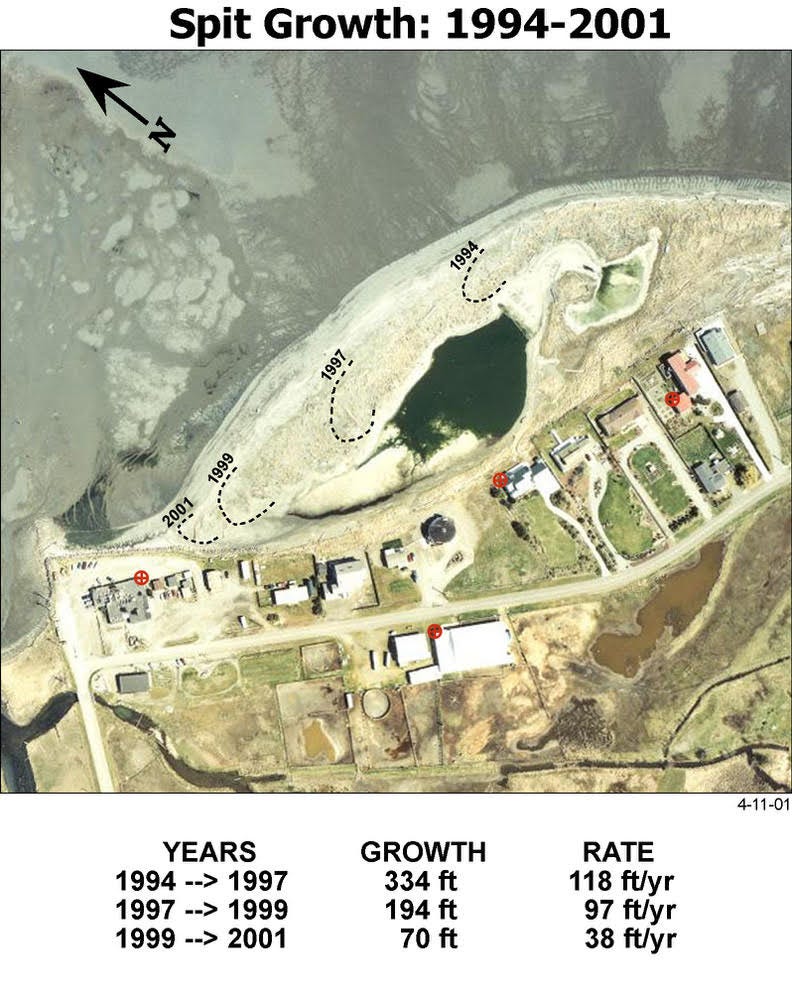
Housing first, questions never
The County’s new “Homeless Crisis Response and Housing Plan” follows the “Housing First” model—give people a home, no questions asked. No mention of addiction. No mention of treatment. Just housing.
Seattle tried this too. The result? More overdoses, more violence, and more taxpayer dollars wasted. If housing is the answer, why are the results so ugly?
For a wake-up call, watch the shocking video “Behind Closed Doors.” Viewer discretion advised: it shows what really happens when accountability is ignored and ideology replaces outcomes.
Water rights fight: Will Clallam be next?
In Whatcom County, over 30,000 residents are being sued in a water rights adjudication supported by the Nooksack and Lummi Tribes. Meanwhile, Eastern Clallam residents watch nervously. The Department of Ecology already implemented the Dungeness Water Rule, which meters private wells in accordance with Jamestown’s preferences.
Who’s exempt from these rules? The sovereign tribes who helped create them. Rules for thee—but not for me?
Watch the emotional story in “Losing the Farm” of one Whatcom County family who share the heartbreak of having to let go of a legacy in part, due to their water rights being taken away.
Sequim gets less rain that Whatcom County. Don’t think it can’t happen here.
WSU deletes its land acknowledgement
Washington State University Extension used to end its emails with a land acknowledgement praising tribal stewardship. But after a CC Watchdog article brought attention to it on April 21, that little signature disappeared.
They didn’t announce it. They didn’t explain it. They just quietly deleted it. Is it deliberate—or is virtue signaling going out of style?
Judge Owens: Justice or identity politics?
County Commissioners are now considering placing a monument for Justice Susan Owens on county property. Owens was a Clallam County judge, Washington Supreme Court justice, and tribal court judge for two tribes. She notably concurred in the decision to strike down Washington’s death penalty as racially biased.
But would she be getting a monument if she were male, didn’t serve tribal courts, and hadn’t ruled to strike down capital punishment? Or is this just identity politics wrapped in marble?
Pizza, pipes, and $15K
This week’s county checkbook reveals $15,743.94 headed to the “Center for Inclusive Entrepreneurship”—a group that’s drawn criticism for helping everyone except straight white males.
Meanwhile, taxpayers continue to foot the bill for more than $200 per week in pizzas for the Harm Reduction Center, where free needles, condoms, and meth pipes are handed out to drug addicts.
And the Board of Commissioners can’t figure out how they faced this year with a $4 million deficit.




